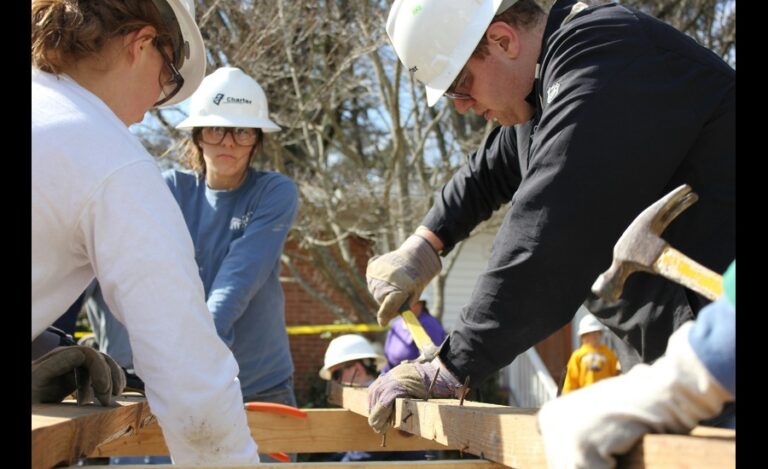Balancing Fun and Responsibility as a Camp Counselor
Camp counselors must balance enjoyment and accountability for campers to have a safe and joyful time. Counselors must lead by example, fostering an atmosphere of excitement while maintaining order and addressing safety concerns. This balance helps campers grow socially and emotionally, builds trust, and creates a memorable, positive environment where fun and learning go hand in hand.
Introduction
Becoming a camp counselor is more than just a summer job; it’s a unique chance to touch lives and foster development in young individuals, all while working within a framework that demands balancing unbridled fun with thoughtful oversight. It involves creating an energy and positivity-filled environment where each camper feels valued and secure. You are entrusted with guiding them through numerous activities and inspiring and instilling values that last a lifetime. By finding the perfect equilibrium between enjoyment and safety, counselors can make a lasting impact on their campers’ lives.
Understanding each camper’s personality and energy level is crucial for creating a harmonious balance. Counselors should encourage open communication and attentiveness to each camper’s feelings, creating a nurturing environment where laughter and learning coexist, enhancing the camper experience.
The Importance of Finding the Right Balance
Striving for balance in a camp setting is akin to mastering a juggling act. On one hand, you have the joys of childhood—innocent and uninhibited fun. On the other, there lies the imperative to uphold safety and discipline. A savvy camp counselor recognizes this balance as a cornerstone of their role, ensuring that each camper enjoys a delightful experience without compromising their safety and well-being. This requires an active awareness of camp rules and a keen ability to enforce them without diminishing the fun quotient. By fostering an environment where exuberance and responsibility coexist, counselors help instill a sense of discipline laced with the joys of childhood exploration.
Creating an Engaging Environment
An engaging environment is pivotal in any camp setting, as it determines the overall tone of the campers’ experience. Counselors play a crucial role in shaping this atmosphere by designing activities that are not only enjoyable but also intellectually stimulating. The magic lies in blending fun with subtle educational elements, enabling campers to learn and grow while they play. Counselors can introduce children to innovative new concepts, whether it’s a team-building exercise disguised as a treasure hunt or a nature walk peppered with ecological lessons. Nurturing an environment of curiosity and excitement makes every day at camp an adventure worth remembering, setting the stage for lifelong learning and development.
Prioritizing Safety and Well-being
In the whirlwind of fun and games, the safety and well-being of campers should never be sidelined. As a counselor, your ultimate responsibility is to foresee and mitigate potential hazards proactively. Establishing firm but fair guidelines helps maintain order and minimize risks. Before initiating an activity, conducting a comprehensive safety assessment is crucial—evaluating weather conditions, equipment integrity, and the campers’ readiness. This attention to detail ensures that every activity, from swimming to rock climbing, remains safe and enjoyable. By embedding safety principles into the camp culture, counselors underscore the importance of always being cautious and conscious, fostering a haven for exploration and play.
Improving Communication Skills
A good camp experience is largely dependent on effective communication. It’s about imparting instructions and fostering a two-way dialogue that invites participation and empathy. Counselors must cultivate an environment where campers feel comfortable voicing their thoughts, ensuring everyone feels heard and included. Enhancing communication skills involves a commitment to active listening, empathy, and clarity, qualities that can be enriched through interpersonal communication workshops. These abilities are essential for settling disputes and figuring out what each camper needs so that activities may be customized to improve their camp experience. Counselors effectively communicate and empower campers, building a culture of respect and mutual understanding.
Setting a Positive Example
Counselors’ influence extends beyond their activities, as they serve as role models for campers. They inspire campers through resilience, empathy, and integrity, demonstrating problem-solving skills, positive thinking, and respect for all. Their ability to handle unexpected challenges calmly and collectedly reflects their ability to teach life lessons. This influence creates a ripple effect of positivity and responsibility, paving the way for campers to emulate these behaviors in their communities.
Handling Challenges Creatively
Camp life is unpredictable, presenting challenges that require creative solutions. Counselors should embrace these situations as opportunities for innovation, turning potential setbacks into fun and learning. For instance, counselors can organize an indoor obstacle course or a skit session if an outdoor activity gets rained out. Creative problem-solving techniques help counselors navigate challenges confidently, ensuring campers’ enjoyment and engagement remain unaffected. These experiences enrich campers’ experience and demonstrate the value of adaptability in life.
Developing Leadership Skills
The camp setting is a fertile ground for developing robust leadership skills. Every decision made, every activity orchestrated, and every camper interaction calls for leadership that is both compassionate and decisive. As camp counselors, individuals enhance these skills in real time, learning to lead by example and creating an inclusive environment. This role nurtures an ability to inspire and motivate, skills that extend far beyond the camp and into all walks of life. From making quick decisions prioritizing camper welfare to resolving interpersonal conflicts, counselors develop a comprehensive skill set that defines effective leadership. This valuable experience in leading teams and managing responsibilities prepares counselors for future camp duties and leadership roles in broader contexts.
Reflecting and Learning
Reflection is a vital tool for personal and professional growth. It helps counselors analyze their strategies and approaches after each camp session, identifying successes and challenges. This mindset encourages continuous learning and adaptation, enhancing the camp environment and their skills. By embracing reflection, counselors can improve their skills and create a more enriching and fulfilling experience for all involved, ensuring a more enriching and fulfilling camp experience.






